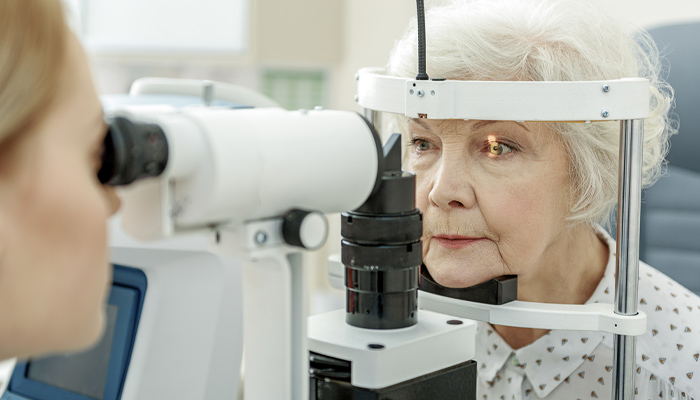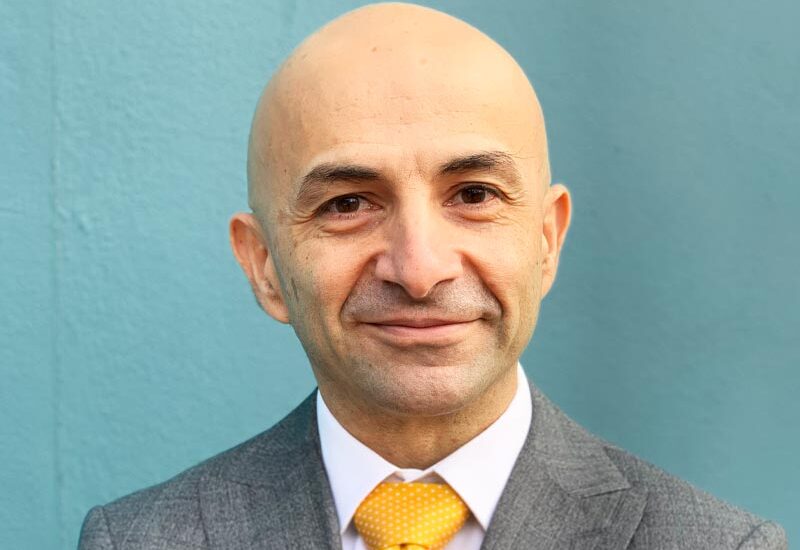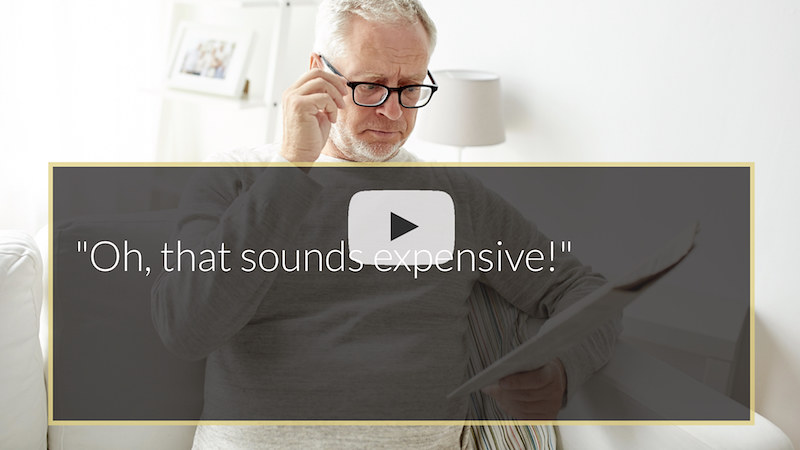Astigmatism - what is it?
Astigmatism occurs when the curve of the cornea is asymmetric so that it looks more like a rugby ball than a football. This produces multiple points of light focus and results in a blurred image.
In most cases, astigmatism is a natural variation. On some occasions astigmatism may be a sign of changes in the cornea that may require further tests.

Astigmatism Symptoms
Astigmatism describes an asymmetry in the curve of the cornea. This causes blurred vision in a similar way to being short-sighted (myopia) or long-sighted (hyperopia).
Astigmatism diagnosis
To diagnose and examine astigmatism, we will perform the following tests:
Refraction test
Ocular examination
A dilated fundus examination to check the health of the eye and retina
A special scan that precisely measures the amount of corneal astigmatism
Treatments
The most appropriate treatment option for you will depend on several factors, such as your:
spectacle prescription, age, job, hobbies, any existing eye conditions or issues, the findings from your clinical examination, the results of any further tests or corneal scans
Lenses & Glasses
To correct astigmatism, patients must wear glasses or contact lenses.
Surgery or Refractive Lens Exchange
To achieve the best visual outcomes without glasses or contact lenses, astigmatism can also be corrected at the time of cataract surgery or with refractive lens exchange with a choice of toric lens implants.
Astigmatism: A tale of Two Patients
The cases below illustrate the importance of accounting for the magnitude and direction of astigmatism before surgery – measuring the eye with very accurate devices, understanding the effect of surgery on the eye, using the most accurate formulae to model the post-operative outcome, and tailoring the lens implant choice to each individual eye.
Every eye is different, and each patient should expect a tailored surgical plan for each eye. This is Prof Muhtaseb’s standard of care.
Patient 1 received cataract surgery with another surgeon at a different clinic. They had 2.5 dioptres of astigmatism before cataract surgery, but left with 4 dioptres after cataract surgery.
This left the patient with poor vision unless they wore glasses with a strong astigmatic prescription at all times.
The patient came to Prof Muhtaseb for help. He informed the patient of the benefits and risks of the various surgical means that could help to correct the residual astigmatism.
Patient 2 consulted Prof Muhtaseb about cataracts. She had 1 dioptre of astigmatism in her glasses. Prof Muhtaseb calculated the likely outcome with and without a toric lens implant using the latest technology for measuring the eye and calculating the best lens implant.
Taking into account the amount and direction of the astigmatism from the corneal measurements, and the effect of surgery on the corneal shape, Prof Muhtaseb recommended a toric lens implant with 2.75 dioptres of toric astigmatic correction. The patients post-operative result was excellent with zero astigmatism in each eye and sharply focused distance vision.
Astigmatism FAQs
Yes, it is possible to correct astigmatism with a toric lens implant. This can be done with either a monofocal or multifocal lens implant.
It is possible for astigmatism to increase after a cataract operation. This could result in blurred vision unless you wear glasses.
To minimise this risk, the cataract operation may be planned so that any induced change in astigmatism is kept to a minimum.
Furthermore, if the change in astigmatism is likely to be significant, then a toric lens implant may be recommended in order to optimise the visual outcome.
The tests that are performed before surgery will help your surgeon make the most appropriate recommendation.
Yes, it is possible to treat residual astigmatism.
The options include laser vision correction or a toric piggyback lens implant.
Depending on your individual circumstances, it may be possible to use a multifocal toric piggyback lens implant to treat astigmatism and provide improved reading vision without glasses.
Who might need our astigmatism treatment?

You’re over 45 and would love to read again without glasses
Unfortunately, reading glasses or varifocals get in the way of many of the things you most enjoy. Yes, spectacles help, but they are annoying little appendages that you lose or must clean to see clearly.

Your vision is yellowing, duller, and cataracts are forming.
The effect on your life can vary from being slightly frustrating, through to significantly affecting your ability to function independently, or even causing a devastating reduction in vision.
Before you developed cataracts, you were living a full life. You may enjoy the outdoors, have indoor hobbies or enjoy travelling. Or, perhaps you have finished working and are now taking the time to enjoy everything you may have missed when you were busy making a living.
Sadly, your eyes now dull the shine of life’s beautiful landscape. The trees, the flowers and even the sky don’t seem as bright as they used to look.
Get your life back without the compromise.

Discover the number one mistake patients make when choosing cataract surgery
Most people have cataract surgery without knowing about all the options they actually have surrounding cataract surgery. Unfortunately, most people only find this out after having cataract surgery. The information in this Wales Cataract Guide could save you frustration and worry. Simply click the button below to give us your email and we’ll send you this life changing guide:
We are proud to be associated with top quality private medical insurance





Hear from our patients
With over 6300+ surgeries performed hear from just a few of my happy patients.
It’s been incredibly liberating to wake up in the morning and be able to see without reaching for my glasses.
I can go any anywhere and see anything near and far. I can see now as well as I could when I was 18 years of age which is incredible and I’m looking forward to clear vision for the rest of my life.
“No. 1 – My advice would be do it. No. 2 – See Mohammed if you can. I made the decision to not go down the NHS route because I wanted to see the best consultant – probably in the UK… It was absolutely worth it… because you can’t really put a price on your sight.”
“I don’t wear glasses at all now. I don’t need them. I was impressed by his professionalism, his calmness. He explained everything clearly and in layman’s language… I would say to anyone considering treatment: just do it. Don’t be afraid of it. It’s painless and it works.”
“I can’t speak highly enough of (Prof Muhtaseb). Nothing was too much trouble, you could phone anytime, day or night. I wish I had done it when I first started wearing reading glasses and just gone to Prof Muhtaseb then and got it done. I would do it all over again, but do it much faster.”
“I would definitely recommend the professor. I think his approach is perfect! If you have any anxieties at all – just check with someone who’s had the procedure done. I had no pain at all. I expected a little bit of discomfort – but no pain, that was good. It’s life-enhancing and that’s not something you can put clearly enough. I didn’t realise how green the trees were! It’s lovely!”

Don’t let post-COVID cataract queues delay you from getting the treatment you need. Book a call with Cat today
Speak with us over the phone, and get a clear answer on your cataract surgery options from the comfort of your home. You’ll also discover the little known possibility of fixing your reading and/or distance vision at the same as you fix your cataracts. Book your call above today.
Enjoy a life free from cataracts, glasses and contact lenses in three easy steps

Talk to us
Request your consultation online or call us on 02922 550 201 and we’ll guide you towards an initial assessment.

Meet your consultant
I’ll see you before treatment to ensure you’re a good candidate and treat you at one of my facilities in South Wales or Bristol.

Revitalise your eyes
I’ll supervise your aftercare as you begin to experience a life free of cataracts and glasses and contact lenses.

Prof Mohammed Muhtaseb, FRCOphth
Consultant Cornea, Cataract and Refractive Surgeon
Based in South Wales, he is one of the very few ophthalmologists working in the UK who is a fellowship-trained specialist in Cornea, Cataract and Refractive Surgery. He holds full specialist registration with the General Medical Council and was appointed as a Consultant in the NHS in 2006.
Learn more about eye conditions and eye treatments

Piggyback lens implants: pros & cons


Can cataract or RLE surgery make astigmatism worse and how do you prevent this?

